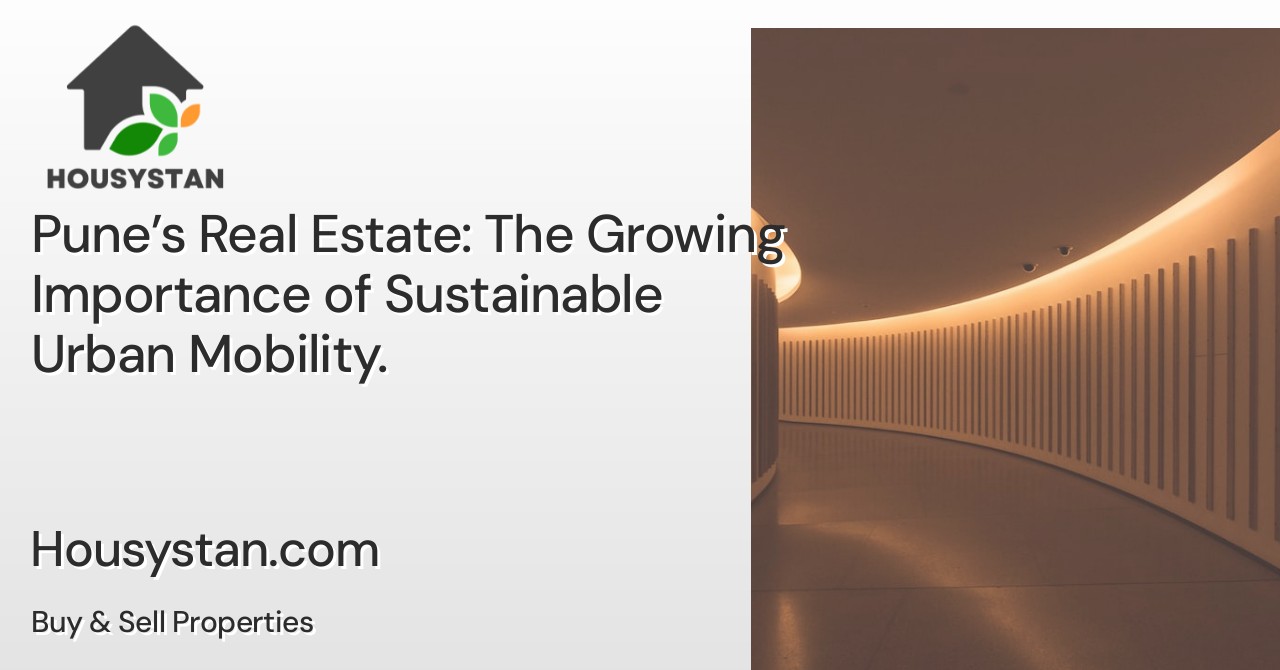Pune’s Real Estate: The Growing Importance of Sustainable Urban Mobility
Read latest blogs and articles from Housystan

The Information mentioned here was last updated on:
20/1/2026Pune’s real estate market is experiencing a transformative shift, driven by the increasing emphasis on sustainable urban mobility. As this vibrant Maharashtra city continues to expand, efficient transportation solutions and eco-friendly development have become top priorities for both homebuyers and investors. With Pune’s population steadily rising, the demand for properties near well-connected transit hubs, green corridors, and walkable neighborhoods is at an all-time high.
Sustainable urban mobility not only enhances connectivity but also reduces vehicular congestion, improves air quality, and fosters healthier living environments. Infrastructure advancements such as dedicated cycling lanes, reliable public transport systems, and pedestrian-friendly streets are now integral to new residential and commercial projects across Pune. These features not only elevate the quality of life but also boost property values, making them highly sought-after by forward-thinking residents and businesses.
Additionally, Pune’s real estate developers are increasingly integrating sustainability into their planning. From energy-efficient buildings to landscaped open spaces and rainwater harvesting, eco-conscious initiatives are shaping the city’s urban landscape. Proximity to metro stations, bus rapid transit routes, and major arterial roads has become a key factor influencing property prices and rental yields in localities like Kalyani Nagar, Baner, Wakad, and Hinjewadi.
- Verified Tenants/Buyers
- Unlimited Property Listing
- Zero subscription/charges fee
For those looking to invest in Pune, understanding the link between sustainable mobility and real estate appreciation is crucial. Properties offering seamless access to public transport, parks, and essential amenities not only promise long-term growth but also cater to the evolving needs of today’s environmentally aware population. As Pune continues its journey toward becoming a smart, green city, sustainable urban mobility will remain central to real estate trends, shaping the future of both residential and commercial investments.
Whether you are a prospective homeowner or an investor, prioritizing locations that champion green mobility solutions ensures a sound investment in Pune’s dynamic property market. Embrace the movement toward sustainable living and secure your place in one of India’s most progressive urban centers.